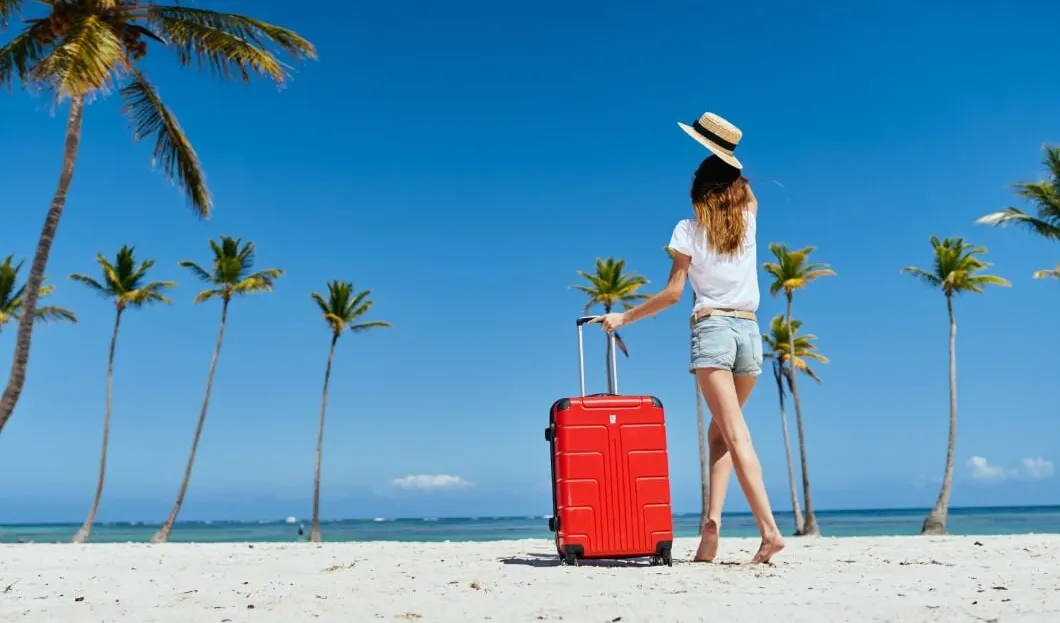
Travel companies that can adapt quickly to travelers' changing demands are the best suited for future success. Tourism Review presents a list of the top 7 travel trends of this year.

Travel companies that can adapt quickly to travelers' changing demands are the best suited for future success. Tourism Review presents a list of the top 7 travel trends of this year.

According to an American Express survey, 69% of travelers plan solo trips this year. Interestingly, younger generations are more open to traveling alone, with 76% of Gen Z and Millennials expressing openness to solo travel. The survey also found that solo travelers are active on social media, with increased posting of videos and images featuring solo adventures. Additionally, Google searches for "solo travel" have risen by 223% over the last ten years, indicating a growing trend.
According to AMEX's recent Global Travel Trends Report, 66% of travelers planning to go solo did so to focus on treating themselves.
With the rise of solo travel, social media presence has also shifted significantly. We are witnessing a considerable increase in videos and images depicting solo adventures posted on social media platforms. The #solotravel hashtag was used on Instagram 9 million + times. This trend reflects changing travel preferences and presents new opportunities and challenges for the travel industry.
Embracing the freedom of solo travel, individuals no longer need to coordinate agendas or navigate competing interests. They can craft their ideal trip without compromise, a testament to their independence and empowerment.

The "experience economy" is significant in the travel industry. However, fewer travelers are interested in traditional sightseeing expeditions. People no longer desire boring and conventional travel experiences as much as they did in the past. Instead, they prefer to invest in vacations that offer once-in-a-lifetime opportunities.
Airbnb is at the forefront of this travel trend, offering its Experiences feature that allows travelers to immerse themselves in unique, locally hosted adventures. With around 50,000 experiences on offer and the recent introduction of 'Icons,' a VIP version of Experiences, the platform is a treasure trove of adventure waiting to be explored.
Camping and glamping trips have become increasingly popular for experiencing local culture while traveling.
Technology presents the travel industry with numerous opportunities. The pandemic accelerated tech adoption in the travel sector. A McKinsey survey revealed that companies advanced their customer and supply-chain interactions. Hotels, airlines, booking sites, and other entities increasingly use chatbots.
Travelers can communicate with providers during every stage of their journey.
Thanks to advances in generative AI, this kind of communication is hassle-free, and people will only sometimes feel like they are talking to a robot.
United Airlines has introduced an "Agent on Demand" service, allowing travelers at the airport to video chat with a customer service representative by simply scanning a QR code. More and more airlines and airports are adopting facial recognition technology, which corporations and government agencies tout as a travel safety benefit.
Bleisure holiday is one of the growing travel trends as well. The latest statistics show that there are nearly 17 million digital nomads in America. Traveling, working remotely, and being location-independent have become even more popular since the pandemic. The hospitality industry is beginning to cater specifically to digital nomads. Booking Group reports that the 'workation' trend, a blend of work and vacation, is becoming intense. Over 50% of travelers say they would extend their business trip to enjoy personal time. Hotels are even beginning to cater to locals who need a quiet workplace.
Latest data shows that more than half of U.S. travelers believe there should be more options for sustainable travel.
Exodus Travels survey went even deeper into consumers' attitudes. The results showed that 91% of travelers see the importance of taking ethical trips, 56% prefer to buy souvenirs from local merchants, and 44% want to support local businesses.
According to a survey by Simon Kucher, high-net-worth consumers are willing to pay up to 40% more for travel options focused on sustainability. In a survey by Booking.com, travelers indicated they would pay a premium for certified sustainable accommodations. The amount consumers are willing to pay for sustainability varies from study to study. However, most travelers will pay around 10-20% extra for vacations that prioritize sustainability.
According to a recent study by McKinsey, there is a generational gap in travel preferences. The study found that Gen Z and Millennials are equally likely to book international trips as they are domestic ones. On the other hand, Boomers and Generation X are twice as likely to travel domestically than internationally.
Notably, older generations have different travel goals than younger generations. Younger individuals seek fun and novel experiences, while older individuals prioritize spending quality time with family. Older travelers specifically mention that having fun with their loved ones is a bigger priority than visiting new places.
AI has been among the crucial travel trends for some time. Generative AI platforms (ChatGPT, etc.) could soon impact the travel industry in real-time.
Skift recently asked 17 executives from the travel industry about their outlook on AI. These executives saw tremendous promise in adopting AI and machine learning technology to their businesses.
These executives identified several areas where AI could enhance operations in the travel industry:
Personalization: Generative AI tools can assist in creating personalized travel itineraries for guests. For instance, a travel agent could input information about a client, such as age, family status, and dietary preferences, and receive tailored travel suggestions.
Advanced segmentation: AI can provide particular targeting options and, in some cases, even create campaigns tailored to individual customers.
Customer service: Integrating AI tools into workflows can enhance the customer experience for both travelers and staff. For example, AI can automatically handle common customer requests, allowing businesses to focus on complex issues and unique cases.
Other use of AI use in travel include:
Predictions: AI can analyze large volumes of data, aiding in predicting future demand for specific destinations.